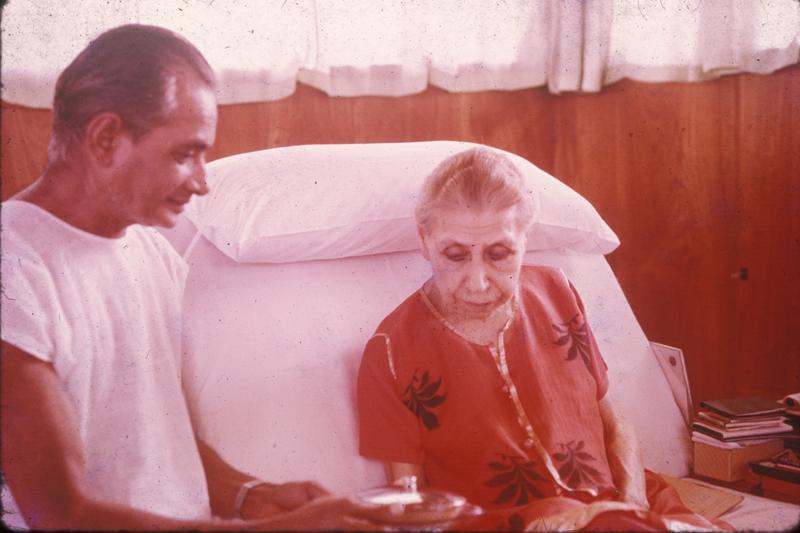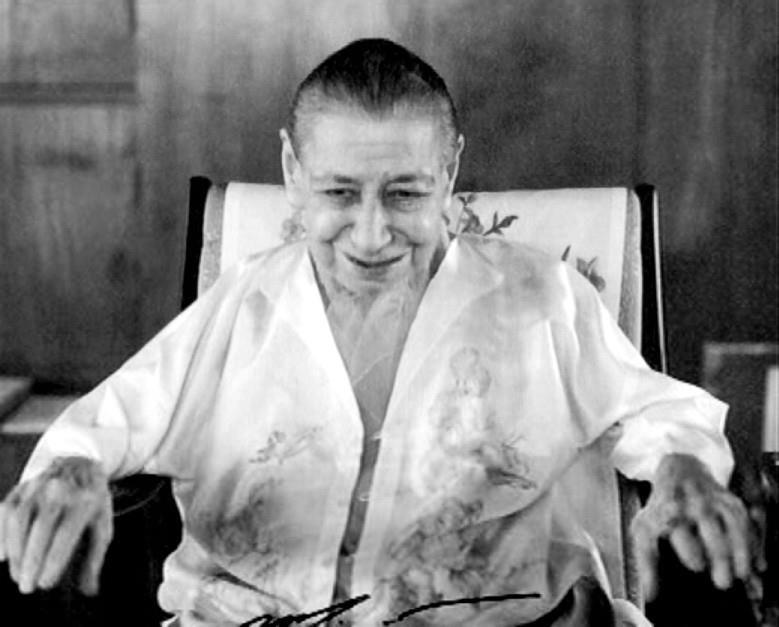Accepting the Grace

Capacity to Heal
01/12/2025
Components for happy and fruitful life
01/14/2025What is the way to accept the Grace with gratitude?
Ah! First of all you must feel the need for it.
This is the most important point. It is to have a certain inner humility which makes you aware of your helplessness without the Grace, that truly, without it you are incomplete and powerless. This, to begin with, is the first thing.
It is an experience one can very well have. When, you see, even people who know nothing find themselves in quite difficult circumstances or facing a problem which must be solved or, as I just told you, an impulse which must be overcome or something that has disturbed them… and then they realise they are lost, they don’t know what to do—neither their mind nor their will nor their feelings help—they don’t know what to do, then it happen; there is within them something like a kind of call, a call to something which can do what one cannot. One aspires to something which is capable of doing what one can’t do.
This is the first condition. And then, if you become aware that it is only the Grace which can do that, that the situation in which you find yourself, from there the Grace alone can pull you out, can give you the solution and the strength to come out of it, then, quite naturally an intense aspiration awakes in you, a consciousness which is translated into an opening. If you call, aspire, and if you hope to get an answer, you will quite naturally open yourself to the Grace.
And later—you must pay great attention to this (Mother puts her finger on her lips)—the Grace will answer you, the Grace will pull you out of the trouble, the Grace will give you the solution to your problem or will help you to get out of your difficulty. But once you are free from trouble and have come out of your difficulty, don’t forget that it is the Grace which pulled you out, and don’t think it is yourself. For this, indeed, is the important point. Most people, as soon as the difficulty has gone, say, “After all, I pulled myself out of the difficulty quite well.”
There you are. And then you lock and bolt the door, you see, and you cannot receive anything any more. You need once again some acute anguish, some terrible difficulty for this kind of inner stupidity to give way, and for you to realise once more that you can do nothing. Because it is only when you grow aware that you are powerless that you begin to be just a little open and plastic. But so long as you think that what you do depends on your own skill and your own capacity, truly, not only do you close one door, but, you know, you close lots of doors one upon another, and bolt them. You shut yourself up in a fortress and nothing can enter there. That is the great drawback: one forgets very quickly. Quite naturally one is satisfied with one’s own capacity.
Ref : Questions and Answers 1954


